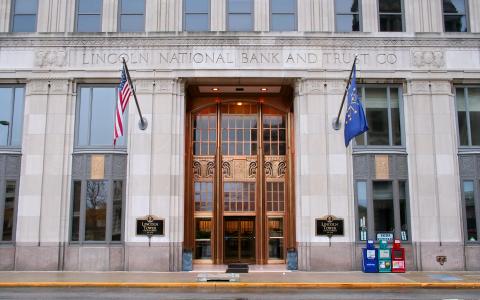
(Yahoo!Finance) - A daily refrain from investors and financial commentators has been to remind viewers, listeners, readers, and anyone else within earshot that this banking crisis is not 2008.
"Similarities with the lead-up to the global financial crisis are becoming more apparent each week, but we believe key differences make a reprise unlikely," wrote Tamara Basic Vasiljev, senior economist at Oxford Economics, in a note to clients on Tuesday.
"More banking sector upheaval and consolidation is possible, but we think broader economic damage is likely to be contained," Vasiljev added.
And indeed, current angst over FDIC insurance limits, business model risks among regional banks, and another iteration of fears about the commercial real estate market all remain a safe distance from the existential questions the 2008 crisis surfaced at its nadir.
As my former editor Sam Ro used to say, the 2008 crisis didn't peak until people were openly doubting the foundations of capitalism.
But the current bank crisis is no joke, either.
Three U.S. banks have failed this month. Over $100 billion in deposits have flowed out of small banks.
By assets, this year's failures are exceeded only by those seen in 2008, when 25 banks holding north of $370 billion in assets went under. The scale of this crisis' failures ought not to be dismissed.
Moreover, the policy outlook remains fractured.
The Federal Reserve raised rates again last week, bringing rates to their highest levels since October 2007.
And while the central bank notably pared back its expectations for more rate hikes this year, Fed officials expect another 0.25% rate hike will be needed to slow inflation.
Moreover, this forecast comes even as Federal Reserve Chair Jay Powell said last week that the banking crisis is "effectively doing the same thing that rate hikes do" for the economy.
"[Policy] has got to be tight enough to bring inflation down to 2 percent over time," Powell said. "It doesn't all have to come from rate hikes, it can come from tighter credit conditions."
The Fed has also stood up emergency lending facilities for U.S. banks and currency swap lines for its global central bank counterparts. Not exactly the sorts of things that call out for higher rates.
And investors have their concerns over Powell's view that a banking crisis borne largely out of the Fed's own actions would also have the result of fixing the Fed's main problem, which is that inflation remains too high.
"The Fed still doesn't plan to cut rates because inflation is persistently above its 2% target," wrote strategists led by Wei Li, global chief investment strategist at the BlackRock Investment Institute, in a note on Monday.
BlackRock noted the Fed's economist forecasts indicate a recession coming to the U.S. economy in the months ahead. An outlook that is consistent with what the central bank also set forth back in December.
"So [the Fed] is expecting to live with lingering inflation even with recession — it sees PCE inflation remaining above 3% at the end of 2023," BlackRock wrote. "Even so, we think the Fed is underestimating how stubborn inflation is proving due to a tight labor market: Inflation could remain above its target for even longer than that if the recession is as mild as the Fed projects."
"The Fed and other central banks made clear banking troubles would not stop them from further tightening," the note continued.
And it is on this last count where 2023 most notably stands apart from 2008.
As Oxford Economics' Vasiljev noted, households, corporates, and banks are all in a stronger financial position than 2008. The lessons of the last crisis are in many ways buffering the economy against a repeat.
An economy that remains so strong it still needs to be cooled off by the Fed's bluntest tool — higher interest rates.
Which has in some ways walked us into a new, unforeseen crisis centered on bank balance sheets and rapid deposit flight. It's just not clear different is better. Or any less perilous for the economy in the months and years ahead.
What to Watch Today
Economy
-
MBA Mortgage Applications; Pending home sales, February (-2.3% expected, +8.1% previously)
Earnings
-
RH (RH), Cintas (CTAS), Conn's (CONN), Paychex (PAYX), Sportsman's Warehouse (SPWH), Verint Systems (VRNT)
By Myles Udland · Head of News



